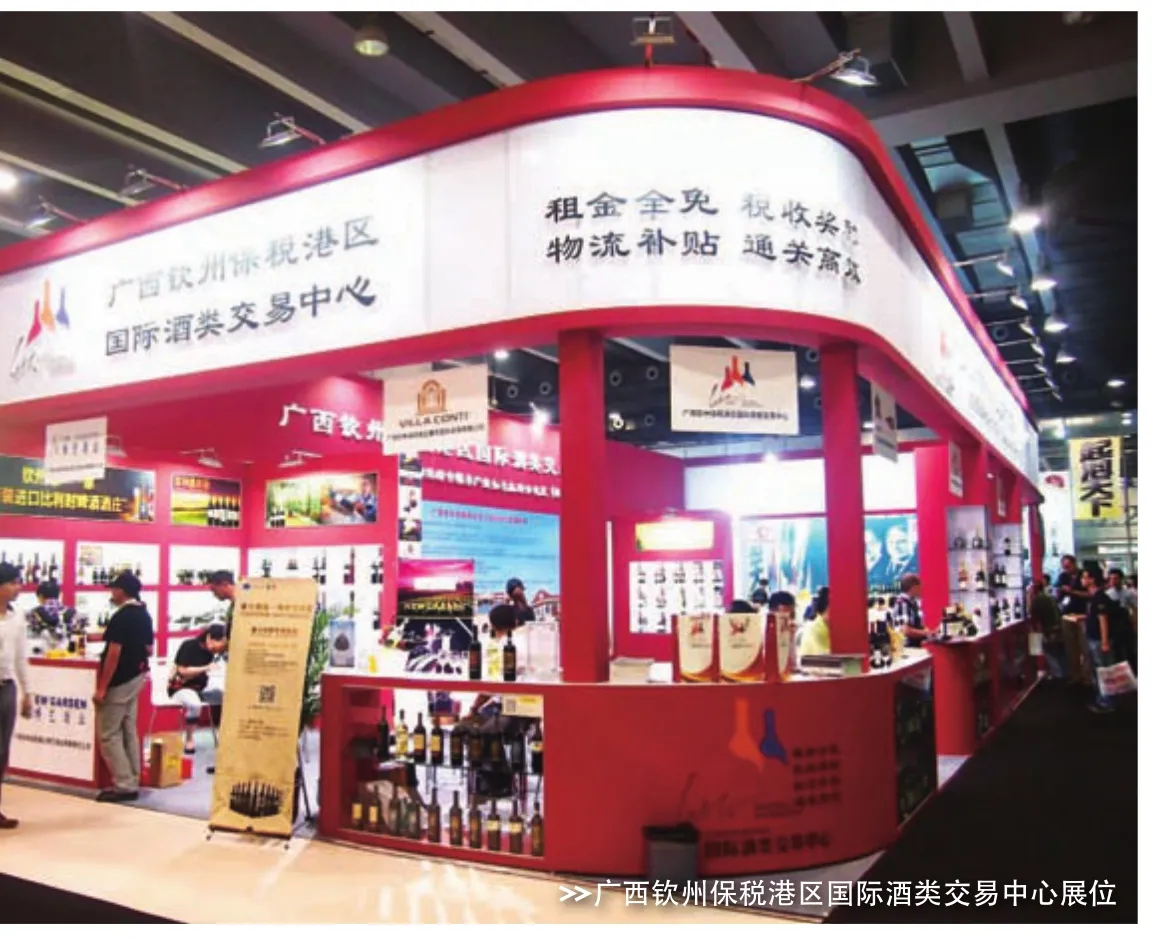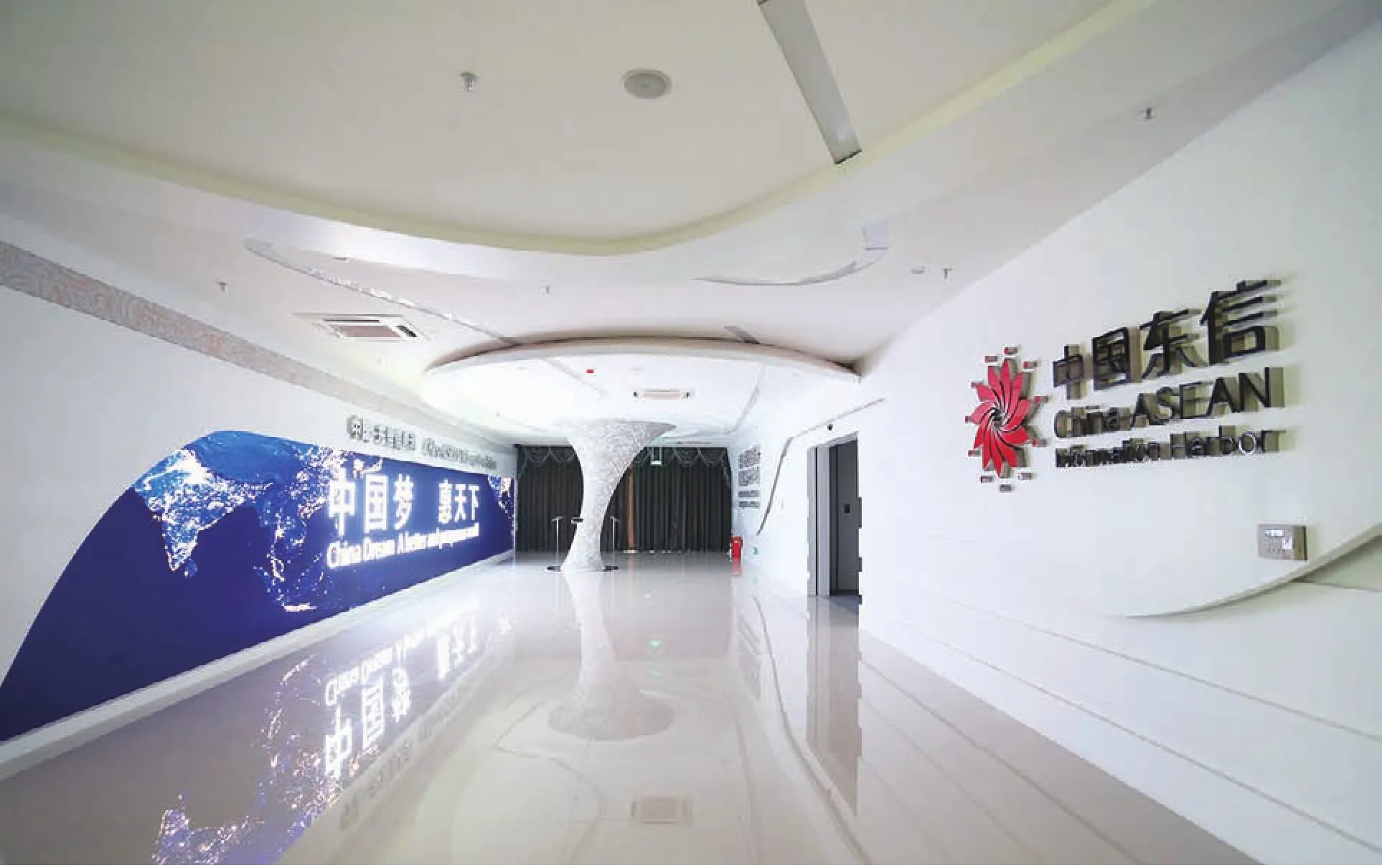北部湾经济区“触电”互联网,家门口可买到进口货
2017-05-08陈丽冰
□ 文/本刊首席记者 陈丽冰
北部湾经济区“触电”互联网,家门口可买到进口货
□ 文/本刊首席记者 陈丽冰
“北部湾一湾连七国,中国—新加坡经济走廊一廊通七城。优越的地理位置,加之与东盟国家人文相亲,是广西发展面向东盟跨境电子商务的重要优势。”在2017年两会期间,全国政协委员、广西壮族自治区政协副主席彭钊建议,在广西设立中国(南宁)跨境电子商务综合试验区,以抢占东盟国家跨境电子商务制高点。
事实上,随着互联网经济的日益发展,“跨境电商”不仅是近年来中国政府两会上的热词,而且已经成为广西北部湾经济区打造中国—东盟贸易新通道,推动区域经济发展的新引擎。
搭建平台,让海外商品进入寻常百姓家
近年来,随着生活水平的不断提高,人们对海外商品的追求也随之提升,不少人成为了海淘、代购一族。不过,流程繁琐的海淘耗时长、成本高,且不少代购鱼龙混杂,真假难辨。相较之下,经过海关、检验检疫等部门严格监管,且交易成本较低的跨境电商则更能满足普通消费者的消费需求,并逐渐成为当下消费者热捧的购物形式。
广西北部湾经济区地处中国西南经济圈、华南经济圈与东盟经济圈的结合部,有着独特的区位和资源优势。在跨境电商热潮的背景下,广西北部湾经济区各地市也充分发挥政策、资源、品牌等优势,不断搭建起面向东盟开放的电子商务平台,既让东盟等国家的海外产品进入寻常百姓家,同时也得以让中国的特色商品走向东盟,在悄然间改变了你我的生活。
如今,在广西钦州保税港区,一般贸易、保税展示交易、跨境电商结合、线上线下业务同步开展的“3+1”运营模式已逐渐成型,并吸引了60多家电商、贸易商和物流商进驻,汇集了40多个国家、2000多个品牌、3万多种商品。而且,这种模式不仅让商品在保税备货期间能享受进口环节的税收优惠政策,还能让商品在进口通关、检验检疫方面全程接受严格监控,保证商品本身的质量以及消费者的利益。如此一来,经济区内的消费者也能便捷地在“家门口”买到货真价实的海外商品了。
而在南宁综合保税区,南宁跨境贸易电子商务综合服务平台运行稳定,共完成3086种商品的备案,实现跨境电子商务零售出口业务1万余单,大量中国的轻工业产品经过报关、通关、支付、仓储、物流、客服等环节,实现“一条龙”通关出口,销往东盟、欧美、日韩及俄罗斯等不同国家和地区。
不仅如此, 2017年3月25日,北部湾东盟O2O跨境电商产业园还举行了开园仪式。据悉,该产业园由北海国家高新区通过整合国家电子商务示范基地、首批国家小型微型企业创业创新示范基地等组成,以“线上+线下+大数据”为主要特征,将着力建设成中国国内首家以大数据为核心支撑、面向东盟的跨境电商产业园。其中,产业园一期核心区(面积1.5万平方米),入驻至少1家国内前5强电商平台企业,与至少3家全球跨境电商巨头形成合作关系,开设东盟10国精品展示馆,开办东盟大数据研究院,引进跨境电商企业100家等。
栽得梧桐树,引来金凤凰。这些电商平台的异军突起,引来了大批“金凤凰”前来栖息筑巢:一达通落户广西,签约合作项目,在南宁搭建阿里巴巴外贸综合服务平台;敦煌网与广西钦州保税港区达成项目合作协议,打造面向东盟的跨境电商交易孵化中心;美丽传说在南宁与越南签署仓储中心战略合作协议;广西商务厅与浙江聚贸电子商务有限公司签署框架合作协议,聚贸广西馆正式启动运营等。而随着这些电子商务龙头企业如雨后春笋般的茁壮成长,既让海内外商品能够进入寻常百姓家,同时也为广西北部湾经济区跨境电商的快速发展写下最好的注脚。


南宁跨境贸易电子商务综合服务平台启动暨中国—东盟(南宁)跨境电子商务产业园揭牌仪式
新规划,新机遇
跨境电商的方兴未艾为广西北部湾经济区的提速发展注入了新的动力源泉,而良好的投资环境和顶层设计将成为产业发展的保障。2017年2月,中国国务院批复同意的《北部湾城市群发展规划》中明确指出,要以中国—东盟信息港南宁核心基地为依托,积极引进大数据、云计算、跨境电商、互联网金融等新一代信息技术产业及信息服务企业。在此背景下,广西北部湾经济区的跨境电商产业发展有了新的“指南针”。
据此,广西北部湾经济区各地市制定规划,推动跨境电商产业转型升级。2017年 3月,玉林市出台的《玉林市电子商务发展“十三五”规划》中指出,玉林市电子商务虚拟市场的建设将根据当地重点产业和特色产业的不同特点,采用不同的电子商务模式,探索发展网货体验店、提货点、配送站和服务中心等业态,实现线上、线下的互相促进和互相融合等,旨在打造成北部湾城市群电子商务中心。
随后,2017年4月,北部湾经济区核心城市南宁市也印发了《南宁市跨境电子商务发展规划(2016—2020)》。根据该《规划》,南宁市将结合中国—东盟信息港南宁核心基地建设,规划建设五象新区电子商务小镇;加快建设中国—东盟(南宁)跨境电子商务产业园、中国邮政东盟跨境电子商务监管中心项目等,从而将南宁市打造成广西跨境电子商务服务中心和中国—东盟跨境电子商务基地,并借助电子商务手段打造中国—东盟贸易新通道和网上中国—东盟自贸区,力争到2020年,南宁市跨境电子商务进出口业务量超1万单/天,实现跨境电子商务年交易额100亿元以上。
当前,跨境电子商务产业已然成为区域经济发展新的动力源泉。广西北部湾经济区作为北部湾城市群的重要组成部分,既是中国西部唯一沿海的地区,同时也是面向东盟的开放前沿。在此背景下,借助现有的电子商务平台和新制定的规划蓝图,可以预见,广西北部湾经济区的跨境电子商务产业也将为区域发展带来新的动能,从而推动建设开放北部湾、质效北部湾、智慧北部湾。
·联系编辑:78724815@qq.com
“Beibu Gulf connects seven countries and so does Nanning (China) –Singapore Economic Corridor. Superior geographical location and people-topeople closeness serve as the major advantages for Guangxi to develop cross-border Ecommerce oriented towards ASEAN,” says Peng Zhao, Member of the National Committee of CPPCC and Vice Chairman of CPPCC Guangxi Zhuang Autonomous Region Committee. He suggests setting up China (Nanning) Cross-border Ecommerce Comprehensive Pilot Zone in Guangxi, preemptively taking advantage of the ASEAN Ecommerce.
With increasing development of Internet-based economy, “cross-border Ecommerce”, a popular word at the two sessions, is actually a new passageway for Beibu Gulf Economic Zone (BGEZ) as well as a new engine for regional economy.
Build cross-border Ecommerce
platform to make ASEAN products
more accessible to ordinary families
In recent years, cross-border online shopping has become commonly seen as the living standard and purchase demand for overseas commodities increases. In contrast to such way of shopping with shortcomings like the complicated procedure, high cost and even a confusing market mixed up with superior and inferior-quality products, cross-border Ecommerce, under strict supervision by customs, inspection and quarantine departments and with low cost, has become more and more popular with consumers.
Guangxi Beibu Gulf Economic Zone is located in a unique joint part of three economic circles in southwestern China, southern China and ASEAN. In the face of the upsurge of Ecommerce, efforts should be renewed in building Ecommerce platform towards ASEAN to make ASEAN products more accessible to ordinary families and lead Chinese products to ASEAN market by taking advantage of policy, resources and brands in all cities in Guangxi Beibu Gulf Economic Zone.
In Guangxi Qinzhou Free Trade Port Area, the “3+1” operating mode consisting of conventional trade, bonded exhibition trade, cross-border Ecommerce, and the “online + offline”business has gradually taken shape, with more than 60 contracted Ecommerce companies, trading companies and logistics companies involving 40 countries, 2,000 brands and 30,000 kinds of goods. Besides, this mode will provide goods in bonded stock with preferential tariff policies as well as strict supervision in terms of clearance and inspection and quarantine, which guarantees the quality of products and thus protect consumers’ interests.
In Nanning Comprehensive Bonded Zone, the cross-border Ecommerce comprehensive platform owning 3,086 registered goods, has completed about 10,000 deals of cross-border Ecommerce retail business and sold a large number of light industrial products made in China to ASEAN, America, Europe, Japan, Korea, and Russia.
Beibu Gulf ASEAN O2O Crossborder Ecommerce Industrial Park was officially launched on March 25, 2017. By integrating the national Ecommerce demonstration base and the first group of national micro and small business entrepreneurship demonstration base in Beihai National High-tech Industrial Development Area, the industrial park, characterized by the mode of “online + offine + big data”, aims to develop into the China’s frst cross-border Ecommerce with big data as its core and ASEAN as its target market. In particular, there is one of China’s top 500 Ecommerce companies settled in the major area (covering 15,000 square meters) of the Phase I of industrial park, at least three global Ecommerce enterprises contracted with this park, one exhibition pavilion for each ASEAN country, ASEAN big data research institute and 100 crossborder Ecommerce companies.
Well-functioning infrastructure and investment environment can attract competitive Ecommerce enterprises’participation: Shenzhen OneTouch Business Service Ltd. (OneTouch in short, a wholly owned subsidiary company of Alibaba Group) inked cooperation project and built Alibaba import and export BPO service platform in Nanning; DHgate reached an agreement with Guangxi Qinzhou Free Trade Port Area to create an ASEAN-oriented Ecommerce incubation center; Meili Chuanshuo (meiliwan.com, an O2O cross-border Ecommerce service company in Nanning) signed strategic cooperation agreement for storage center with Vietnam; JUMORE, a cross-border e-commerce platform in Zhejiang, signed framework cooperation agreement with Department of Commerce, Guangxi to operate JUMORE Guangxi pavilion. These Ecommerce businesses’ active participation is sure to make overseas products more accessible to ordinary families and lay a solid foundation for further development of cross-borderEcommerce in Guangxi Beibu Gulf Economic Zone.
New plan brings in new opportunity Though the rising cross-border Ecommerce has injected impetus in the development of Beibu Gulf Economic Zone, the sound investment environment and future vision still serve as the guarantee for the industrial development in the future. A development plan for Beibu Gulf city cluster, approved by the State Council of P.R.C., indicates that, relying on the China-ASEAN Information Harbor Nanning Core Base, efforts should be proactively made to introduce new generation of IT and information service companies involving big data, cloud computing, cross-border Ecommerce and Internet-based fnance. This new plan has provided a new and clear direction for the development of cross-border Ecommerce in Beibu Gulf Economic Zone. To fully implement the development plan, all cities in Beibu Gulf Economic Zone have worked out plans for transforming and upgrading cross-border Ecommerce. The 13thFive-year Plan (2016-2020) for Ecommerce Development in Yulin released in March 2017, points out that the Ecommerce virtual market in Yulin will be built by integrating online and offine business depending on local priority industries and distinctive industries.
Nanning Cross-border Ecommerce Development Plan (2016-2020) released in April 2017 indicates that, based on the development of China-ASEAN Information Harbor Nanning Core Base, efforts should be made to build a Ecommerce town in Wuxiang New District; a group of projects including China-ASEAN (Nanning) Cross-border Ecommerce Industrial Park and China Post ASEAN Crossborder Ecommerce Supervision Center should be facilitated in order to build Naning into a center for Guangxi cross-border Ecommerce service as well as a base for China-ASEAN cross-border Ecommerce; by creating a new passageway for China-ASEAN trade and online China-ASEAN free trade area, Nanning cross-border Ecommerce will strive to reach 10,000 import and export deals per day and ten-billion-yuan annual volume by 2020.
In today’s Internet Plus era, crossborder Ecommerce industry has become the new impetus for regional economic development. Beibu Gulf Economic Zone, with its core role in the Beibu Gulf city cluster as well as its coastal and ASEAN-oriented advantages, is going to focus on the cross-border Ecommerce industry based on the existing Ecommerce platform and the newly-formulated blueprint. The industry is expected to bring new energy to the openingup of the Beibu Gulf and regional development.
Mushrooming Cross-border Ecommerce in Beibu Gulf Economic Zone Makes ASEAN Goods More Accessible
Written by Chen Libing / Translated by Mao Yuye

